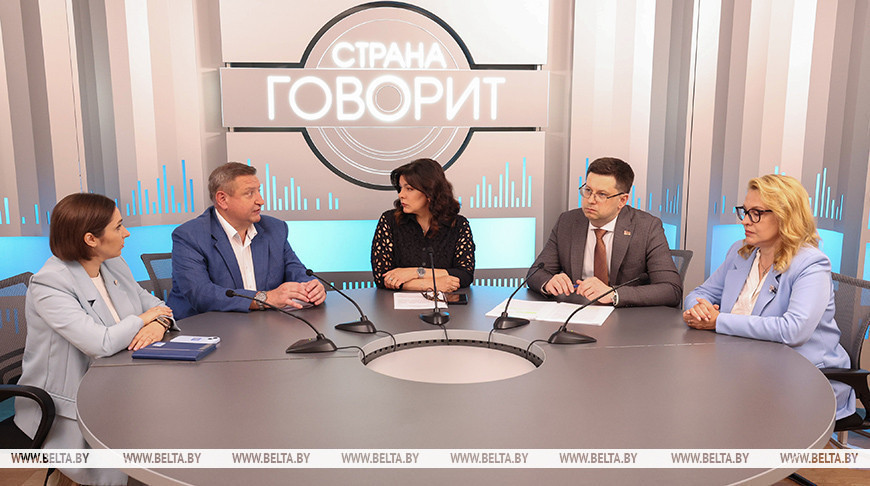
MINSK, 14 August (BelTA) - Belarus will initiate development of artificial intelligence (AI) technology legislation in 2026, Sergei Kruglikov, Director General of the United Institute of Informatics Problems at the National Academy of Sciences of Belarus, said in the latest episode of BelTA’s The Nation Speaks project.
The government has mandated the development of Belarus' AI legislation. “This decision was made by two presidential advisory bodies: the Strategic Projects Council chaired by the NASB president, and the Legal and Judicial Policy Council headed by the chairman of the Constitutional Court. After several sessions they recommended developing AI legislation and establishing a dedicated technical committee," Sergei Kruglikov stated. "The country will draw up an AI development concept and strategy in order to move forward and develop the national regulatory frameworks. We have prepared the complete documentation package and submitted it to the National Center of Legal Information to ensure the AI technology bill is included in the 2026 legislative agenda.”
Significant progress has been made in this direction. "We conducted consultations across nearly all relevant ministries and agencies, including the Economy Ministry, the State Committee for Science and Technology, and the Education Ministry. They endorsed designating the National Academy of Sciences as the sectoral regulator for AI. A dedicated working group of 42 cross-ministerial specialists has now been formed to draft the legislation, Sergei Kruglikov noted.
According to him, a glossary of key terms is currently being developed. This work is based on the CIS Model Law on Artificial Intelligence Technologies, previously drafted by our Institute," he noted. "The model law provides standardized definitions, including a clear legal concept of what constitutes artificial intelligence."
According to the Model Law, Artificial Intelligence means a system of technological solutions comprising: Information and communications technology (ICT) infrastructure, software applications utilizing machine learning and/or other computational methods, data processing services and decision-making mechanisms that emulate human cognitive functions (including non-algorithmic problem-solving), produce outcomes comparable to or exceeding human intellectual performance on specific tasks.
The government has mandated the development of Belarus' AI legislation. “This decision was made by two presidential advisory bodies: the Strategic Projects Council chaired by the NASB president, and the Legal and Judicial Policy Council headed by the chairman of the Constitutional Court. After several sessions they recommended developing AI legislation and establishing a dedicated technical committee," Sergei Kruglikov stated. "The country will draw up an AI development concept and strategy in order to move forward and develop the national regulatory frameworks. We have prepared the complete documentation package and submitted it to the National Center of Legal Information to ensure the AI technology bill is included in the 2026 legislative agenda.”
According to him, a glossary of key terms is currently being developed. This work is based on the CIS Model Law on Artificial Intelligence Technologies, previously drafted by our Institute," he noted. "The model law provides standardized definitions, including a clear legal concept of what constitutes artificial intelligence."
According to the Model Law, Artificial Intelligence means a system of technological solutions comprising: Information and communications technology (ICT) infrastructure, software applications utilizing machine learning and/or other computational methods, data processing services and decision-making mechanisms that emulate human cognitive functions (including non-algorithmic problem-solving), produce outcomes comparable to or exceeding human intellectual performance on specific tasks.













